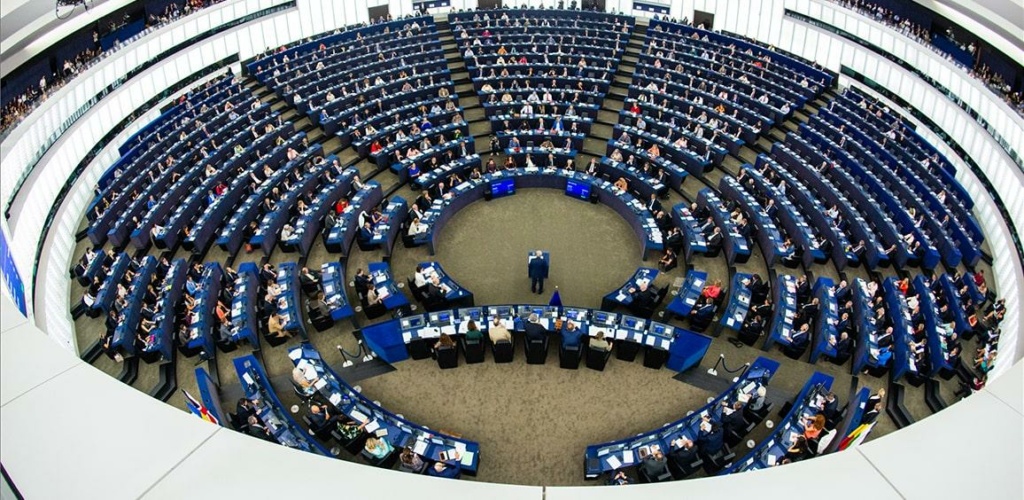Plenary summary: 2021 report on Turkey and global threats on abortion rights

During its June I plenary session, the European Parliament Plenary debated and voted on some files that relate to the human rights of LGBTI persons:
- 2021 Commission Report on Turkey – Committee on Foreign Affairs (AFET)
- Resolution on global threats to abortion rights: the possible overturning of abortion rights in the US by the Supreme Court
- (Note: For a complete list of all texts (and specific paragraphs) in this legislature touching upon LGBTI issues, check our List of resources available here.)
2021 Commission Report on Turkey
On Monday, Members of the European Parliament debated the 2021 Commission Report on Turkey (rapporteur: Nacho Sánchez Amor, S&D). The report was adopted on Tuesday.
The European Parliament reiterated its concern about the persistent gap between Turkey and the EU on values and standards, and the continuing lack of political will to carry out the necessary reforms to address, in particular, the serious concerns about the rule of law and fundamental rights. It added:
- 12. Notes the importance of upholding the freedom of assembly and demonstration in Turkey; […] regrets the serious backsliding in the freedom of assembly and demonstration, which is increasingly under pressure in the light of the routine use and extension of bans on protests and demonstration by provincial governors, the excessive use of force against peaceful demonstrators and journalists amid general impunity of law enforcement officials, and the administrative fines and prosecutions handed out to demonstrators on charges of terrorism-related activities; […] welcomes the statement by the European External Action Service (EEAS) on 4 February 2021, which recalled that the COVID-19 pandemic cannot be used as a means to silence critical voices and condemned the hate speech by high-level officials against LGBTI students; strongly condemns the recent violent crackdown by the police on the 9th Pride march at Boğaziçi University, in which unlawful excessive force was used against students and numerous participants were detained;
- 21. Expresses deep concern about the state-sponsored deterioration in the human rights situation for LGBTI people, in particular with regard to physical attacks and hate crimes – especially against transgender persons – the protracted bans on Pride marches across the country, restrictions on the freedoms of assembly, association and expression, and censorship in the media and online, and urges the Turkish Government to protect their equal and legal rights; recalls the need to adopt measures to ensure that all citizens can safely enjoy these freedoms; highlights the Turkish Government’s increasingly homophobic stance and the use of hate speech against LGBTI people by high-level officials, which is aimed at stigmatising and criminalising the LGBTI community and can serve as a breeding ground for hate crimes and a powerful enabler of increased harassment, discrimination and potential violence; recalls that Turkey’s obligations under the European Convention on Human Rights entail a responsibility to combat discrimination and violence against LGBTI persons and urges the Turkish authorities to deliver on their commitments; calls for sexual orientation, gender identity and sex characteristics to be added as protected grounds in the anti-discrimination provision of the labour law; highlights the pattern of use of judicial proceedings to silence human rights defenders, NGOs and lawyers and to curtail activism, in particular LGBTI rights defenders; is concerned about the criminal investigations against the Istanbul, Ankara and Diyarbakır bar associations and the case involving the participants in the 2019 Pride march at Middle East Technical University in Ankara; welcomes the acquittal of the latter; is following with grave concern the ongoing trial against the executive board and president of the Ankara Bar Association, in which the Ankara Chief Public Prosecutor’s Office is seeking up to two years in prison for allegedly ‘insulting a public officer’ when criticising the head of the Directorate of Religious Affairs (Diyanet) for the openly homophobic statements he made on 14 April 2020, namely that ‘Islam curses homosexuality […] because it brings about disease and rots generations’; urges the Turkish authorities to put in place the necessary legal measures to end any discrimination based on sexual orientation and gender identity in line with Article 21 of the Charter of Fundamental Rights of the EU; calls on the authorities to align the criminal legislation concerning homophobic and transphobic hate crimes with General Policy Recommendation No 7 of the European Commission against Racism and Intolerance; urges Turkey to drop all charges against the peaceful participants of LGBTI events and to lift the protracted bans on Pride events;
Watch the plenary debate here.
Global threats to abortion rights: the possible overturning of abortion rights in the US by the Supreme Court
On Wednesday, Members of the European Parliament debated the resolution on Global threats to abortion rights: the possible overturning of abortion rights in the US by the Supreme Court. The resolution was adopted on Thursday.
The resolution strongly condemns the backsliding in women’s rights and SRHR taking place globally, including in the US and in some EU Member States; recalls that SRHR are fundamental human rights which should be protected and enhanced and cannot in any way be watered down or withdrawn. Additionally, the resolution mentions:
- 6. Is deeply concerned about the fact that bans and other restrictions on abortion disproportionately affectwomen in poverty, in particular racialised women, including Black women, Hispanic women and Indigenous women, as well as women from rural areas, LGBTIQ people, women with disabilities, adolescents, migrant women, including irregular migrants, and single-parent households headed by women; stresses that women who, due to financial or logistical barriers, cannot afford to travel to reproductive health clinics in neighbouring states or countries, are at greater risk of undergoing unsafe and life-threatening procedures, and of being forced to carry their pregnancy to term against their will, which is a violation of human rights and a form of gender-based violence[1];
Watch the plenary debate here.
[1] https://www.ohchr.org/Documents/Issues/Women/WRGS/SexualHealth/
INFO_Abortion_WEB.pdf





